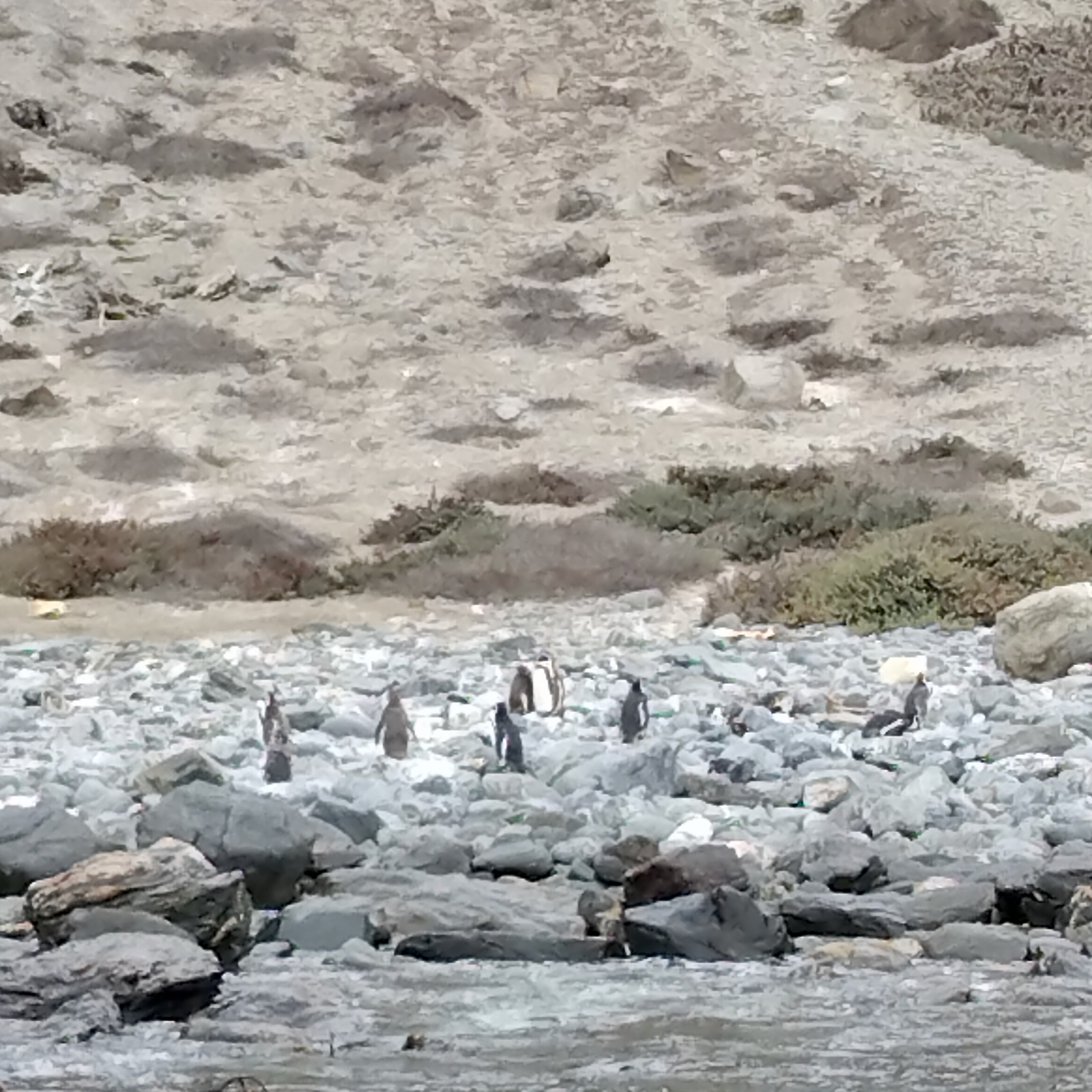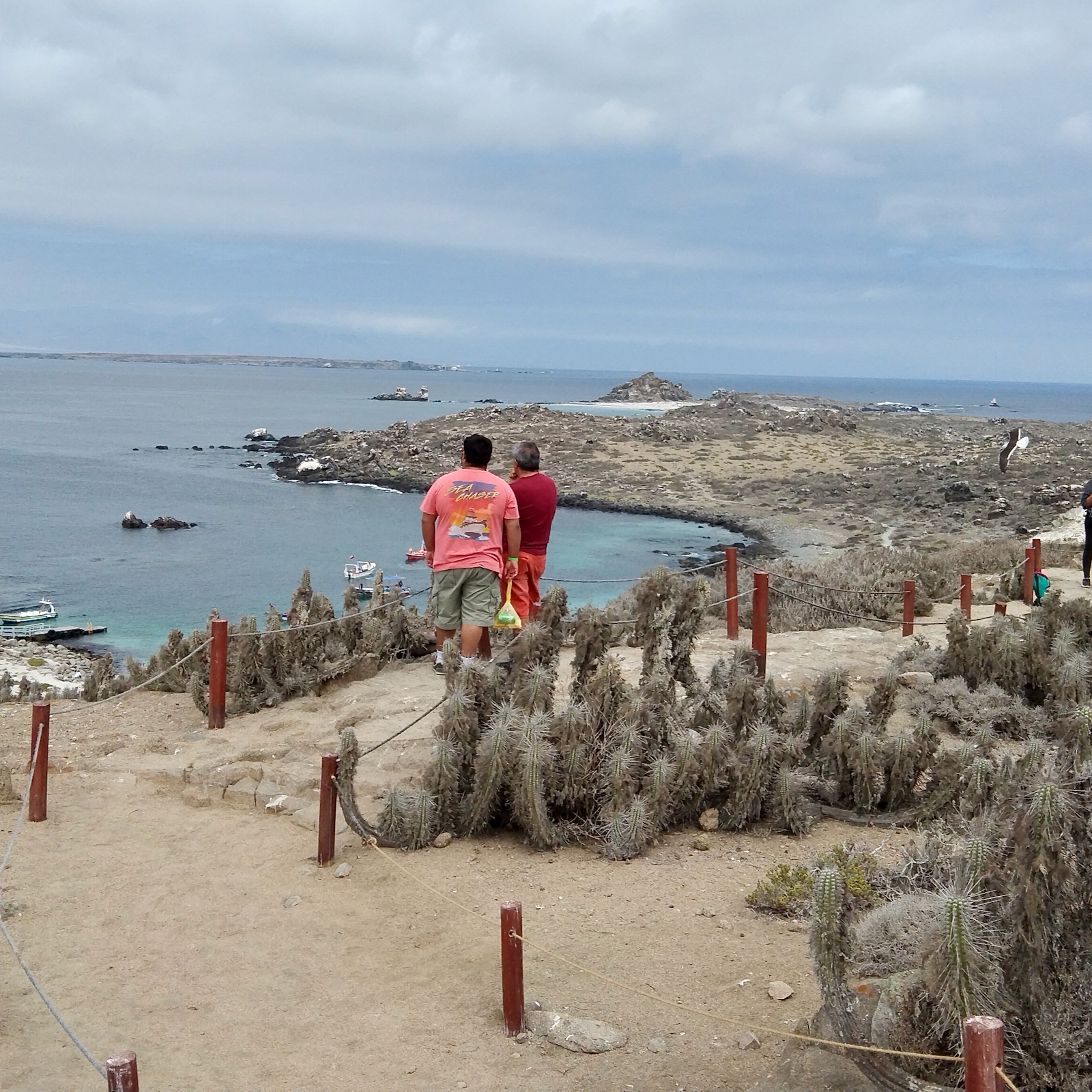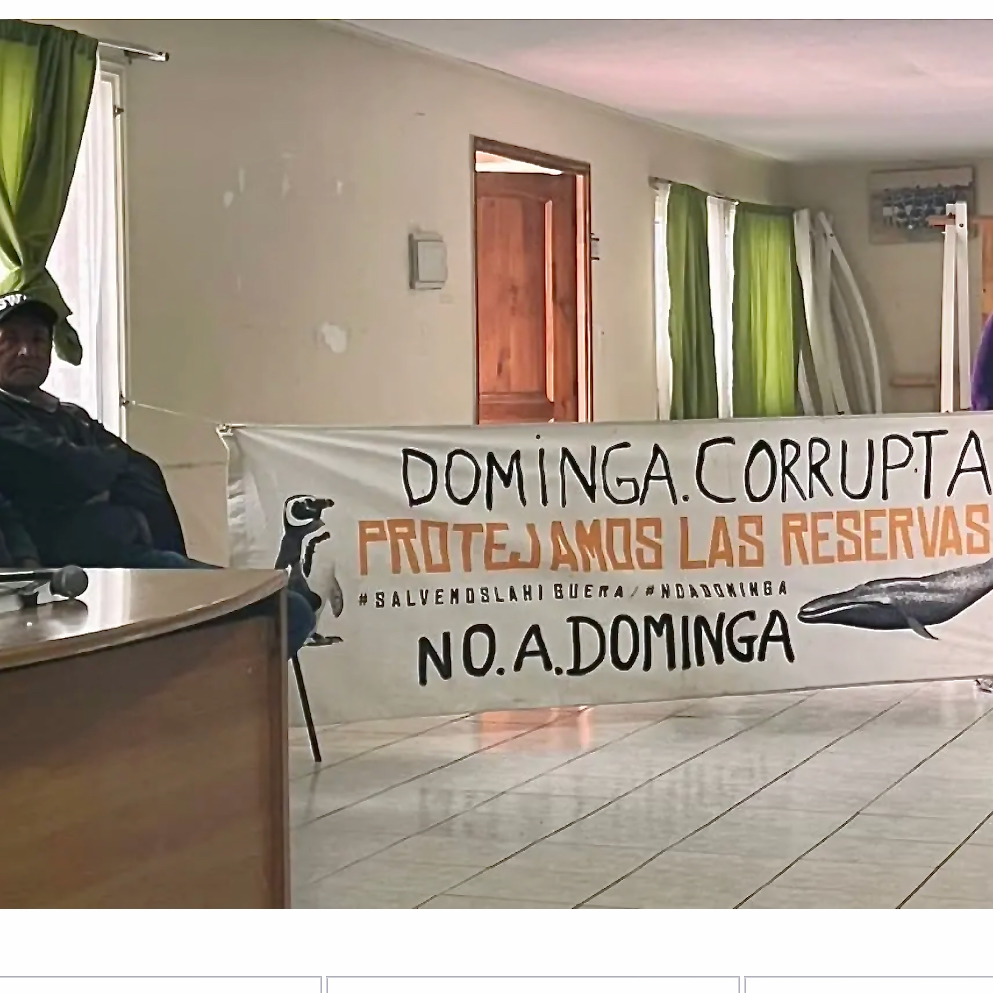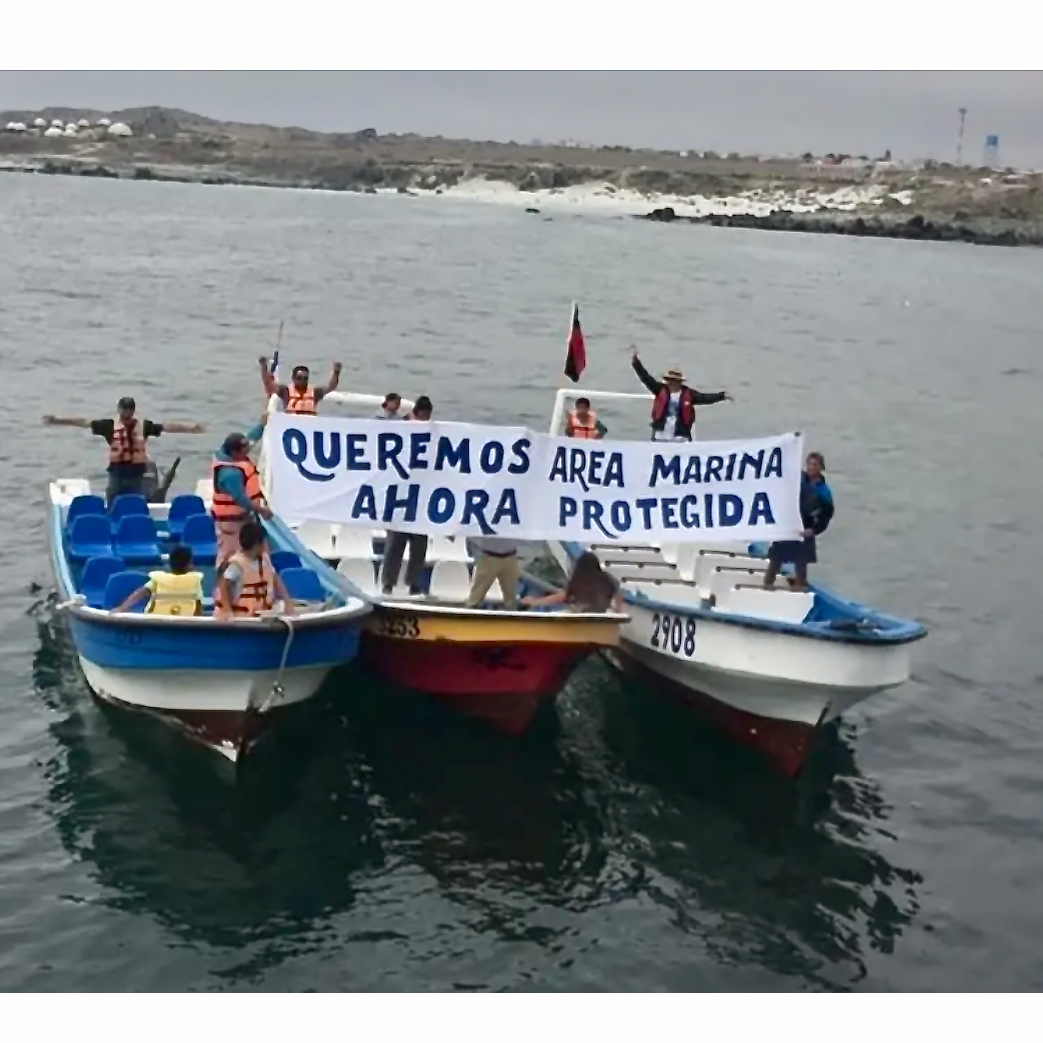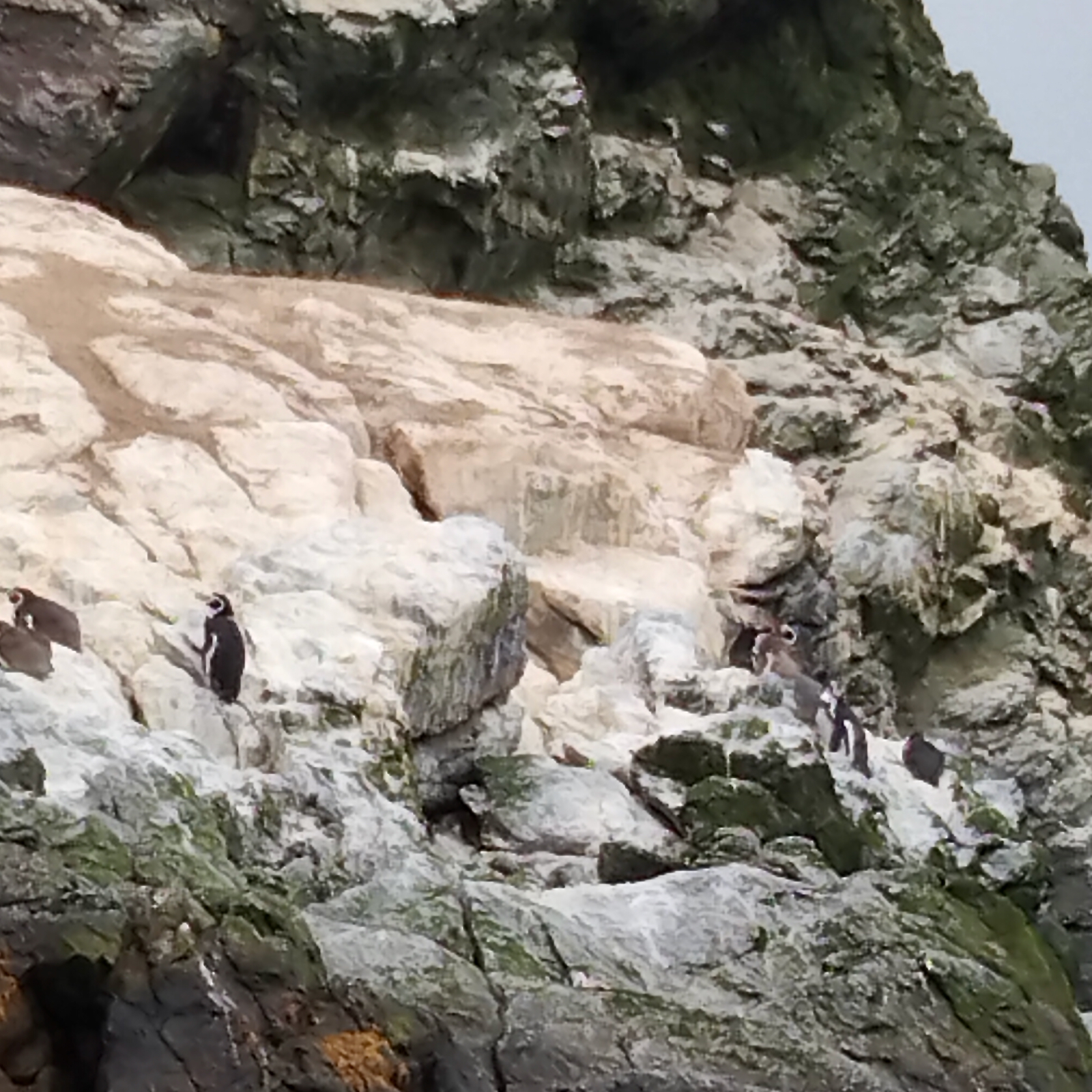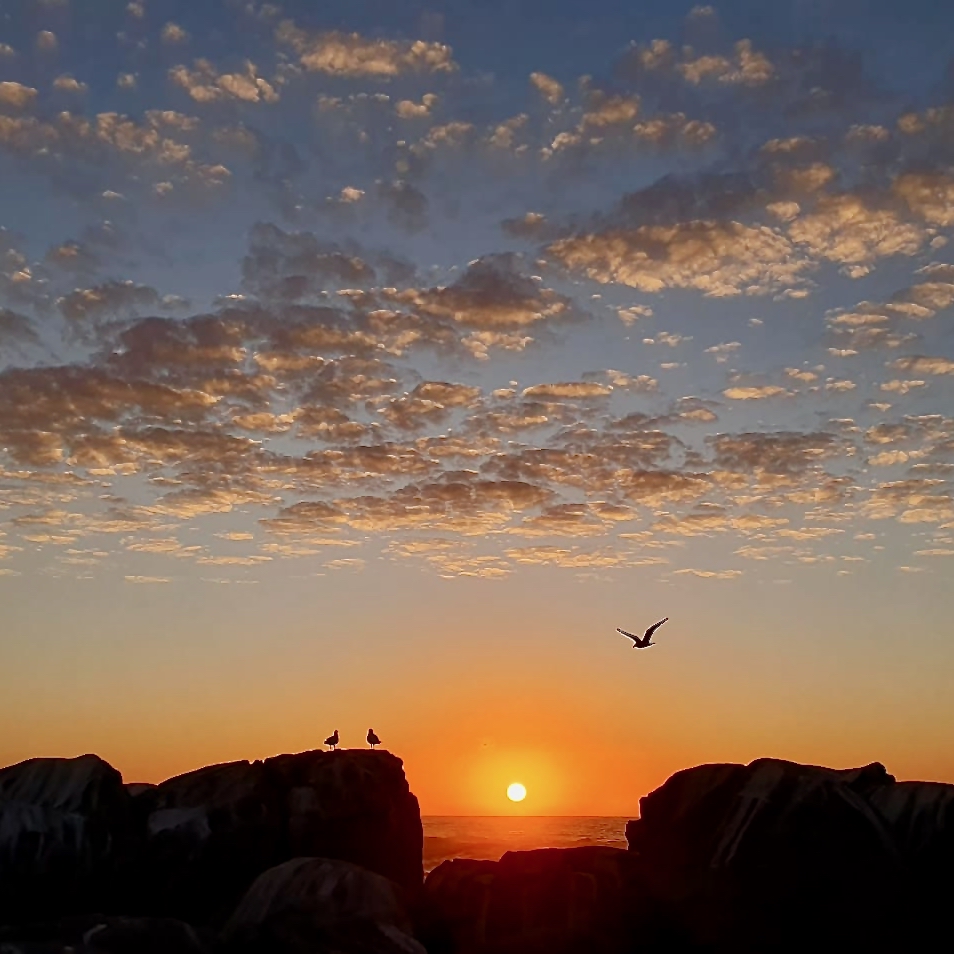Landau, August 9, 2025. Since 2009, environmentalists and scientists have been demanding an effective protection of the Humboldt Archipelago in northern Chile. For just as long, the communities of La Higuera and Freirina have been proposing a protected area based on scientific and expert opinions. The proposal was also supported by the regional governments of Coquimbo and Atacama. Three presidents—Bachelet, Piñera, and Boric—have approved the Área de Conservación de Múltiples Usos - ACMU (1). In the last, unanimous decision of the Council of Ministers in August 2023, the technical opinions also took into account the bi-regional nature of the area, which is located in the Coquimbo and Atacama regions. The declaration of the protected area was prepared with workshops and citizen surveys in the municipalities of La Higuera and Freirina.
In November 2023, the “ACMU Humboldt Archipelago” decree (1) was published in the official journal. The marine and coastal protection zone covers approximately 574,873 hectares and is located off the coast of the municipality of Freirina (Atacama Region) and the municipalities of La Higuera and La Serena (Coquimbo Region). The declaration aims to protect the biodiversity, habitats, ecological processes, and ecosystem benefits of this particularly valuable marine ecosystem. The declaration not only designates rare marine animals and islands as worthy of protection, but also the characteristic marine upwelling systems and artisanal fishing. However, the decree also stipulates that the marine protected area and the management plan must not affect free navigation and anchorages insofar as these relate to international obligations entered into by Chile.
The status of “marine protected area with multiple uses” (1) is weak and does not meet the outstanding importance of this ecosystem. As mentioned above, shipping traffic, anchoring of ships, and desalination plants are not generally prohibited; moreover, existing permits remain valid. With so much “openness,” conflicts between environmental protection and economic interests are inevitable, and the danger of destruction of the Humboldt Archipelago is unfortunately not averted.
It is the Ministry of the Environment, which is responsible for administering the protected area and developing a management plan. The regional environmental secretariats (Seremis) (2) of Atacama and Coquimbo have commissioned professional consultants to design and implement citizen participation. In May 2025, just 18 months after the decree was published, workshops were held with citizens and interest groups such as fishermen and tourism service providers, with the relevant authorities and scientists involved, as well as with NGOs.
The declaration of the marine protected area is professionally sound and democratically legitimate. As mentioned above, the protection status is not sufficient to effectively protect the Humboldt Archipelago from destructive projects such as the Dominga mining and port project (3). Nevertheless, in June 2025, Dominga lobbyists spoke out again, claiming to speak for the majority of citizens and accusing non-local NGOs such as Oceana, Greenpeace, and FIMA (4) of dividing the community. El Comunal, the electronic newspaper of the municipality of La Higuera, quotes the president of the “La Higuera Community Association,” Yonathan Rojas, as saying: "Our leadership and most of our neighbors want progress without ever attacking those who think differently. We have been attacked and insulted... We have had to work hard to defend a project that we know well, which we have studied and which we know is a real opportunity for the residents of our community. (5) In the La Higuera municipal council, supporters of “Dominga” discredited the management plan consultations as non-transparent and without any legal basis. They demanded a resolution from the municipal council to stop the consultation process.
More than twenty local organizations representing fishermen, farmers, indigenous communities, and environmentalists (5) responded to this violation with an open letter to Mayor Uberlinda Aquea and the municipal council, demanding effective protection for the archipelago. They pointed out that the criticism presented was “without sufficient information without foresight, and did not take into account that it (the criticism) did not reflect the opinion of more than 50 percent of the municipality's residents.” This called into question the consultation process and more than 15 years of professional and scientific work. They recalled that the creation of the ACMU (1) was supported by three consecutive, politically diverse governments—Bachelet, Piñera, and Boric. This shows “that the protection of the Humboldt Archipelago is a concern for the entire country.” The organizations also recalled that the initiative for protection
1. originated from fishing, tourism, and socio-ecological organizations in the community,
2. was confirmed by an unusually high number of citizen participation and consultation processes, and that the protection
3. would secure thousands of jobs in the long term, including in the fishing and tourism industries. (6)
The signatories express their concern emphatically: "... their own municipal authorities failed to recognize the enormous development opportunities offered by such a unique and extraordinary ecosystem as the Humboldt Archipelago. We therefore call on our mayor and all city councilors to focus their efforts on facilitating and supporting the development of the management plan for the Humboldt Archipelago Nature Reserve. (Now it matters!) ... to work together to find a dialogue on common interests. We are convinced that, like us, they want to develop a community that promotes a fair and sustainable development model based on respect for our natural and cultural heritage, rather than its self-destruction.“ They also appealed to the fishermen of Totoralillo Norte and Caleta Los Hornos to ”talk about what unites us, thinking about our children and humanity. What example do we want to set for them? What kind of life do we want to leave them? They too have the unconditional right to enjoy the beauty of our community and to have fathers and mothers who work together for a dignified life." (6)
The lobbyists of “Dominga” (7) respond to the appeal for the common good and dialogue with escalation and, with the support of Senator Mathías Walker (8) and Representative Sergio Gahona (9), request that the country's highest supervisory authority stop the development of the management plan. Mario Flores, president of the La Higuera Sur Fishermen's Association, explained: “The implementation of this plan does not have clear and transparent rules. For this reason, we are asking the Court of Auditors to initiate a comprehensive audit and to immediately suspend the processing (of the management plan) until these doubts have been completely clarified.” In addition to the lack of regulations for the development of the management plan and the alleged complete lack of transparency in the consultation process, supporters of “Dominga” also claim that there was no professional justification for the assumptions regarding the causes of the threat. (7)
The application has no chance of success. While it is true that there is no regulation for governing the development of the management plan. However, Dominga's lobbyists fail to mention that in Chile many management plans for protected areas are in force, even though they were developed without a relevant regulation. They also fail to mention that, according to the decree, the Ministry of the Environment is obliged to develop a management plan, even without a regulation.
The narrative of Andes Iron and its supporters puts self-interest above the common good, replaces facts and scientific findings with assertions, and thus attempts to prevent the sustainable and equitable development of the community of La Higuera.
W.K.
translated by Angelika Veelken using and reviewing deepl.com
Notes
For better readability, the generic masculine form is used in this article. Unless otherwis indicated, the terms used in this article refer to all genders.
(1) Área de Conservación de Múltiples Usos (ACMU) - Multiple Use Marine Conservation Area.
(2) Environmental Seremi - Secretario ministerial regional de Medio Ambiente - Regional Ministerial Secretary for the Environment. The Environmental Seremi is the regional representative of the national Ministry of the Environment in the country's regions.
(3) Dominga project. The company Andes Iron plans to mine iron and copper ore in open pits in the municipality of La Higuera. To this end, a processing plant, a seawater desalination plant, a slurry pipeline, and a port are to be built.
(4) FIMA is a non-profit NGO. The leading environmental law firm aims to contribute to the defense of the environment and legislation in Chile.
(5) El Comunal – electronic newspaper of the municipality of La Higuera, June 13, 2025.
(6) Open letter to the mayor and municipal council of La Higuera, July 2025. The signatory organizations include:
- Camanchaca Environmental Movement, Caleta Los Hornos, - Cultrucción, socio-cultural and sports organization, Caleta Los Hornos, - Yerba Buena Association, Caleta Los Hornos, Chungungo Road, - La Cruz de Chungungo Independent Workers' Union, - Chungungo Fishermen's Professional Association, - Professional Association of Divers and Fishermen of Caleta Punta de Choros, - Fishing Cooperative and Marketing Cooperative of Punta de Choros, - Professional Association of Divers and Artisanal Fishermen of Los Choros, - Trade Cooperative of Los Choros, - APR drinking water supply of Punta de Choros, - Changa Juana Vergara indigenous community and family, Punta de Choros, - Cultural and social association of the Chango people, Punta de Choros, - Organization for the Development and Promotion of Tourism – ODEFOT of Punta de Choros 11, - Movement for the Defense of the Environment – Modema, La Higuera, - Indigenous community of the Humboldt Archipelago, Punta de Choros, - Víctor Jara Association, dances, Los Choros, - Association of small landowners of Los Choros, - Drinking water for rural areas – APR of Los Choros, - Neighborhood Association No. 3, Los Choros, - La Victoria de Los Choros Sports Club, - Tomas Sarmiento, fisherman from Chungungo, - Erika Ahumada, treasurer of the Bahía Los Choros Fishermen's Association (with the participation of fishermen from Chungungo, Totoralillo Norte, Caleta Los Hornos, and Los Choros
(7) El Comunal – electronic newspaper of the municipality of La Higuera, July 21, 2025. The article mentions: the Association of Artisanal Fishermen of La Higuera, the local Chamber of Commerce, and other social and productive organizations in the Coquimbo region.
(8) Matías Walker Prieto. Lawyer and member of the Democratic Party. He is currently a senator for the Coquimbo region and served as a representative in the same region for three legislative periods.
(9) Sergio Gahona. Member of the Independent Democratic Union (UDI), a right-wing conservative party. He is currently a member of the Chamber of Deputies and has represented the interests of the mining companies Compañía Minera del Pacífico (CMP) and Andes Iron for many years.



